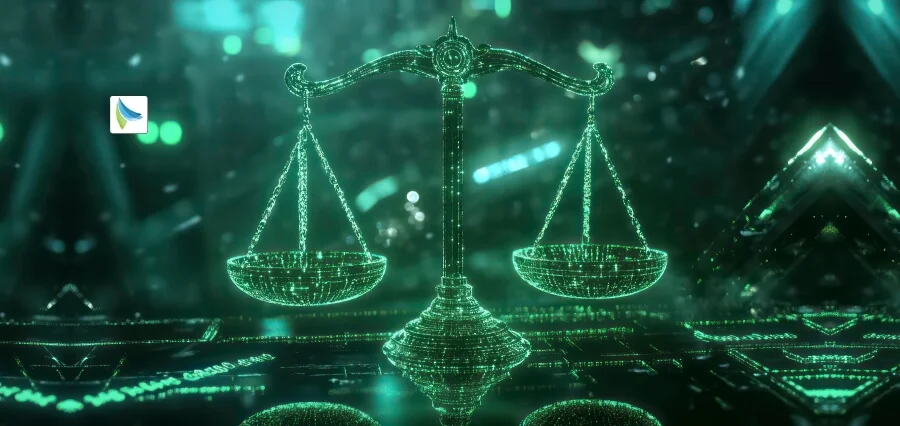The role of emerging technologies is shaping the landscape for law, hence ushering in a new age, which will essentially be one characterized by innovation and efficiency. Taking our journey ahead to 2025, our advanced tools comprising artificial intelligence, blockchain, and data analytics radically and dramatically alter the ways through which legal services might be delivered. This change is not about substituting old methods but upgrading the ability of the legal professional to do more strategic work in their practice. The law, which was once thought to be an aversion to change, is now embracing these technologies for broader availability and ease of complex processes.
Rise in AI heralds a watershed change in legal tech. With machine learning algorithms, this now gives legal practitioners the ability to look through mega-volumes of data at unmatched speeds and precision. For instance, AI-driven platforms increasingly predict case outcomes from historical data where lawyers can craft better strategies. This gives it the predictive power to enhance decision-making as well as equip clients with clarity regarding some legal situations. Therefore, the traditional lawyer-client interaction is changing- the client nowadays is better informed as well as interacting more closely with his legal process.
The Presence of AI within Legal Procedures
AI does far more than what it can only do with analytical data. It evolves essential processes into something new revolution in even simple procedures involving contract drafting or review. With advanced AI technologies, bespoke contracts can be generated with significantly less attorney involvement. That will save the lawyers a lot of time to attend to such work. Indeed, recent research studies already indicated that by the end of 2025, the most common use case for the legal industry with generative AI would be in document review. This development will see to it that lawyers spend more hours in complex negotiations and client meetings than in routine paperwork.
Secondly, AI is enhancing e-discovery practices through streamlining the search and retrieval of documents and finding relevant information faster. This saves time and costs in litigation processes and reduces the cost of manual document review. As firms become more accustomed to these technologies, they will most likely see significant increases in operational efficiency and client satisfaction.
Blockchain Technology’s Impact
Another major transformative force in the legal world is blockchain technology. Blockchain technology has provided a safe and transparent means of recording transactions, which enhances the trust associated with legal agreements. Smart contracts are self-executing contracts with predetermined terms. The use of smart contracts is increasing because they ensure compliance automatically and reduce the involvement of middlemen. It streamlines the process of real estate transactions and business agreements, making them faster and more secure.
Blockchain adoption also solves critical issues regarding data integrity and authenticity. The decentralized nature of blockchain ensures that once information is recorded, it cannot be altered without the consensus of all parties involved. This feature is very useful in areas such as intellectual property rights, where proving ownership is important.
Data Analytics for Informed Decision-Making
Data analytics has become an essential tool in law firms that want to have a competitive advantage. The use of data analytics gives the firm the ability to extract valuable information from their operations; therefore, it will help make informed decisions in the handling of cases and resource management. For instance, past case outcomes can enable firms to identify patterns that will shape future strategies.
Data analytics can also help assess risks by finding potential pitfalls in contracts or litigation strategies before turning into costly disputes. As companies continue to embrace the data-driven approach, they not only enhance the operational efficiency of their processes but also improve outcomes for clients with proactive risk management.
The Future of Legal Services
Looking ahead, these technologies would probably redefine what it means to deliver legal service. Law firms that strategically take on these new technologies will adapt and lead change toward more open, efficient, and client-focused practices. Focus will shift away from the antiquated billable hour model of charging and toward more value-based models that reflect the increased efficiency the technology brings along.
As we venture further into 2025 and beyond, so too will considerations of ethics in the use of technology. For law firms, this means responsibly deploying AI tools in a way that addresses issues of bias and accountability. Emphasis on ethics will be a key factor in maintaining public trust in an increasingly automated legal environment.
All things considered, these emerging legal technologies are more than trends. Instead, they point to foundational transformations that are poised to give new meanings to law and practice for the future. With the development of AI, blockchain, and data analytics, the profession finds itself at an intersection that challenges and gives the option to reshape the role that it will take within society—the transition of adversity to growth and innovation. An open evolution will eventually pave the way toward more accessible, efficient, and aligned services of law.


















